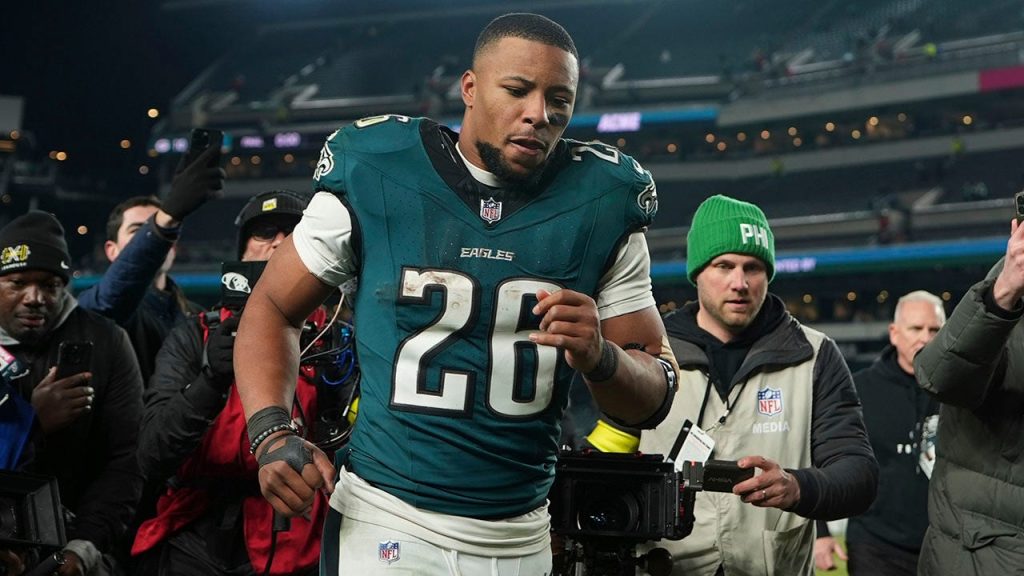Saquon Barkley, the Philadelphia Eagles’ star running back, faced a pivotal moment in their wildcard playoff game against the Green Bay Packers, a moment that tested not only his athletic prowess but also his strategic acumen. With the game on the line and the clock ticking down to 1:09, Barkley received a handoff and burst through the Packers’ defense for a 17-yard gain. A clear path to the end zone lay before him, an opportunity to solidify his status as a premier running back with a touchdown. Yet, Barkley chose a different path, one that highlighted his football intelligence and prioritization of team victory. Instead of scoring, he slid to the ground, effectively sealing the Eagles’ victory by running out the clock.
This decision carried significant weight, particularly for numerous bettors who had placed their faith in Barkley finding the end zone. His anytime touchdown prop bet was the most popular of the day at BetMGM, and he featured prominently in parlay bets across various platforms. Barkley’s odds of scoring were favorable, at -119, reflecting the widespread expectation that he would add another touchdown to his impressive season tally. However, his strategic slide defied these expectations, prioritizing the team’s win over individual statistics and potentially impacting the outcomes of countless wagers.
Barkley’s post-game comments underscored his unwavering commitment to winning, emphasizing that individual statistics paled in comparison to the ultimate goal of team victory. He dismissed the significance of personal accolades, stating that whether the team won by a large margin or a narrow one, the only statistic that truly mattered was the win itself. His decision to forgo the touchdown opportunity was not a moment of temptation resisted, but rather a calculated move rooted in ensuring the first down and securing the victory. This act showcased his maturity and understanding of the bigger picture, valuing the team’s success above personal glory.
This pivotal moment illuminated the complex intersection of individual performance, team strategy, and the influence of sports betting. Barkley’s decision, while potentially disappointing for some bettors, highlighted the unpredictable nature of live sports and the strategic decisions that can influence outcomes. His act defied statistical probabilities and demonstrated that in crucial moments, a player’s strategic thinking can outweigh the allure of personal achievements. The narrative surrounding Barkley’s slide transcended the realm of a single play, becoming a testament to the complexities and nuances of professional football.
The game itself underscored the Eagles’ dominance, culminating in a 22-10 victory over the Packers. Barkley’s contribution, even without a touchdown, was significant, as he amassed 119 yards on 25 carries. His performance highlighted his versatility and ability to impact the game in various ways, even beyond scoring touchdowns. His strategic decision to slide not only secured the win but also solidified his reputation as a player who prioritizes the team’s success above individual accolades.
In conclusion, Saquon Barkley’s decision to slide instead of scoring in the final moments of the Eagles’ wildcard playoff victory served as a powerful illustration of the complexities of professional football. It highlighted the tension between individual performance and team strategy, the influence of sports betting on fan engagement, and the unpredictable nature of live sporting events. Barkley’s act, while potentially disappointing for some bettors, underscored his maturity, football intelligence, and unwavering commitment to winning. His performance, coupled with his post-game comments, solidified his image as a player who values team success above personal glory, a trait that resonates beyond the confines of a single game.

